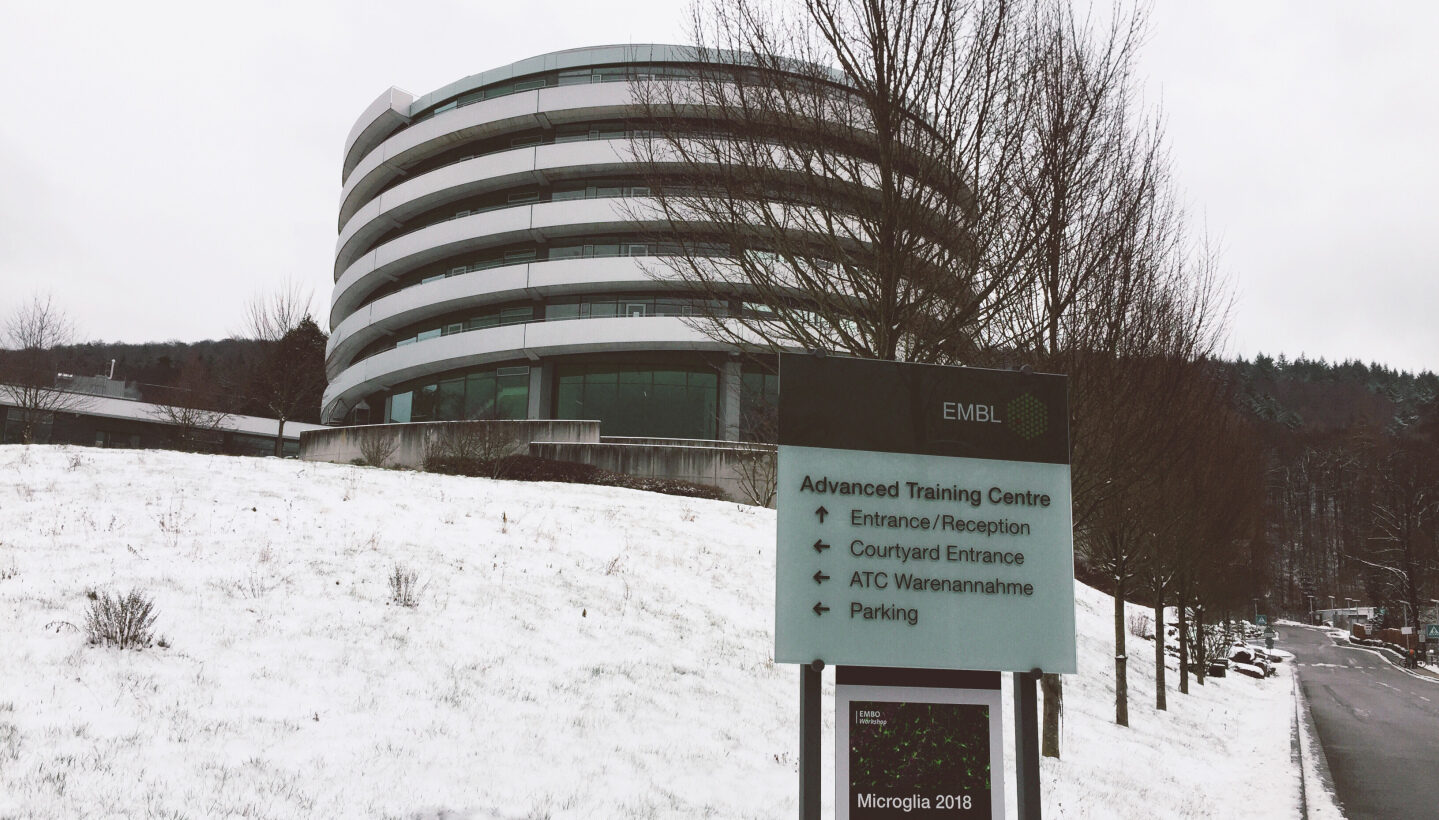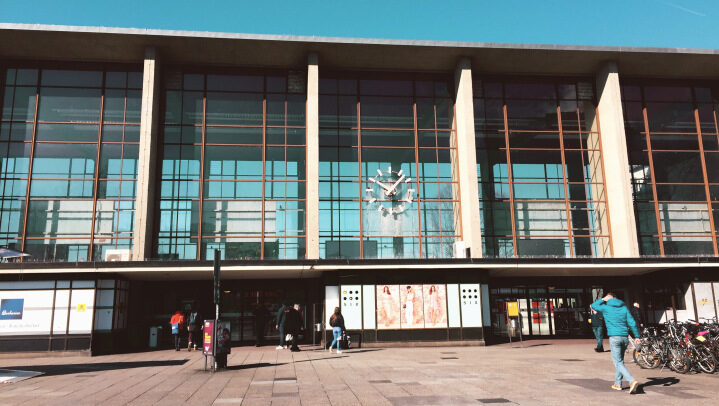Microglia 2018…

…by Chiara / from Austria / PhD Neuroscience 2016-2019
It’s a beautiful and sunny afternoon in Edinburgh today, and I’ve decided to write a couple of lines about a workshop I recently returned from on Wednesday (with less delay than my last report on the ENABLE conference in Barcelona).
From the 18th to the 21st of March, I visited the EMBL in Heidelberg for the ‘Microglia 2018‘ workshop. Microglia are the resident immune cells of the brain, and my research has recently focussed heavily on them, trying to identify their role following brain injury. Even before that, microglia were probably one of my favourite cell types because they are so versatile (yes, I realize that I have reached a next level nerd status), and really exciting microglia research is happening at the moment. We are beginning to realize that they actually do much more than just provide immune surveillance to the brain, but can actually alter neuronal circuits and shape behaviour. The workshop had a fantastic scientific programme of invited speakers, and reading the poster titles the week before the conference made me even more excited to go; this was the first time I would be going to a conference that was so closely related to my own research, but also would cover many other aspects of the microglial research that I find so interesting.

Over 50% of the talks were present by speakers selected from the abstracts. This provided particularly early-career researchers with the opportunity to present their work (either as postdocs or leaders of recently established groups), and the level of these talks was high throughout. The invited speakers also did their best in showcasing their fantastic work, with some truly inspiring research being conducted all over the world. A lot of the talks made me realize how little I actually know, but I guess that’s a good thing – because it definitely inspired my curiousity to branch out in the future. Particularly the work looking into how microglia can affect behaviour by reshaping neuronal circuits and either promote synapse formation or eliminate/modify synapses was truly fascinating, and is definitely something I would like to work on in the future. A lot of this research is really revolutionising the way we think about microglia under baseline conditions, but also how much they actually contribute to disorders such as autism, schizophrenia or neurodegeneration – microglia could actually be key to all of these! Overall, the talks made me proud to be part of such an exciting field of research, even if I am just at the very start of my research.


Finally, the atmosphere of the workshop was honouring (and mourning the absence) the recently deceased Prof. Ben Barres (Stanford University). Prof. Barres was a passionate researcher and a pioneer in the field of glia research, providing many groundbreaking insights into the brain and why glia are worth studying. One of his MD-PhD students, Mariko Bennett, gave an emotional tribute to introduce the Ben Barres that many of us sadly never had the chance to meet – a curious and brilliant mind, standing for the ‘underdogs’. Apart from his research, Ben was a vivid advocate for equal opportunities for women, the LGBT community, and young researchers. He certainly was a great mentor to many people. A short excerpt of an interview with him after his cancer diagnosis pushed many of us – even those who did not know him in person – to tears. At the same time, I believe his work – both scientific and advocating gender equality – will continue to inspire scientists. A start for that is the Ben Barres Young Speaker Prize that was introduced at this workshop, who went to Dr. Rosa Paolicelli from the University of Zurich (and who actually also gave a talk in Edinburgh recently!).
With that, I would like to end my post on this conference, and let the words on curiosity in Science resonate with you. It certainly has inspired me to continue to ask questions about why things are the way they are.
I think Science is beautiful. What is more beautiful than discovering something that has never been known before?



